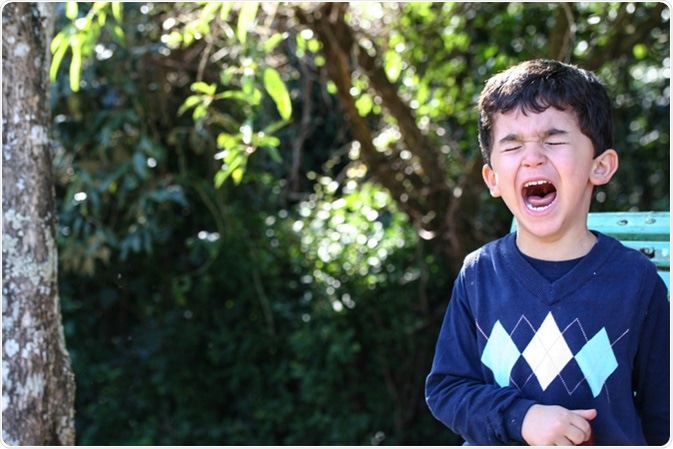For The Latest Medical News, Health News, Research News, COVID-19 News, Pharma News, Glaucoma News, Diabetes News, Herb News, Phytochemical News, Thailand Cannabis News, Cancer News, Doctor News, Thailand Hospital News, Oral Cancer News, Thailand Doctors
Separation anxiety disorder is a psychiatric condition characterized by excessive fear when parted from loved ones or those to whom the patient is closely attached. Though particularly common in children, this condition may also be present in youngsters and even in adults.

Psychiatrists say that it is normal for newborns and infants to become uncomfortable when familiar people (usually the parents) are away. It is part of the process of developing cognition and understanding of the environment. Eventually they grow and their brains learn to analyze more complex patterns corresponding to the intermittent absence of their parents or caregivers. At this point, they start adapting and coping with the anxiety.
However, in some children this discomfort is so profound as to make it difficult for them to handle the departure of their loved ones. Separation anxiety usually fades as the child gets more exposure and builds up logical thinking, but it may sometimes continue into adulthood and old age as well.
Patients present with different symptoms based on their age and on the severity of the condition. Signs and symptoms of separation anxiety may be categorized in three broad areas.
The most common symptom experienced by all patients with separation anxiety is the excessive worry that something bad will happen to their loved ones. They develop recurrent thinking patterns around the same fear.
Infants feel helpless about their own safety, and cry uncontrollably when their parents are going away. School-going kids often feel worried about whether their parents will come to pick them up or not. They feel anxious during school picnics and outings. Elderly patients feel distressed about the well-being of their children or spouse. They feel anxious and fearful lest some road accident or other horrible incident has occurred to their family members if they are even a little late to reach their homes.
Such a continuous state of fear and anxiety leads the patients to experience persistent sadness and to feel nervous most of the time. They often form baseless feelings of guilt in their minds with regard to the possibility of anything happening to their loved ones. This results in low self-esteem and feelings of embarrassment, and sometimes in irritability and agitation.
Persistent psychological fears in the patients manifest in their physical functioning. They may experience an array of physical signs including headache, stomach pain, nausea, vomiting, dizziness, and muscular pain. Other symptoms include increased pulse rate, hypertension, shortness of breath, excessive perspiration, and frequent urination. Lack of concentration, compulsive behavior, poor cognition, and reduced appetite are other common indicators of a hyperanxious state.
Patients with separation anxiety disorder usually have irregular sleep patterns, and suffer from nightmares with visuals of bad incidents happening to their close ones.
Typically, infants and children with the disorder display “clingy behavior”. They want their parents or caregivers to be present with them all the times. They refuse to sleep or even be alone in a room. Due to the excessive fear of being separated from their parents, they avoid school and other outdoor activities, and prefer staying in their own protected space. They become panicked when forced to move out of their comfort zone.
These patients also find it very difficult to socialize and make new friends because of excessive emotional dependence on their family members. Adults with separation anxiety keep checking on the whereabouts of their family members. They also often avoid work and travel because of their restless cyclic thinking pattern. Awkward social behavior and tendency to remain detached is often observed.
The presence of such symptoms for a minimum of four weeks in children and six months in adults may indicate separation anxiety. However, as these symptoms can overlap with those of other psychiatric conditions, it is always advisable to seek professional help for the diagnosis.